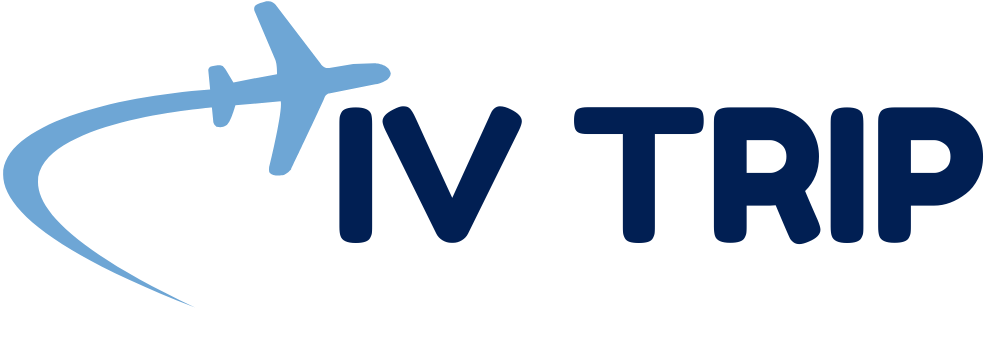Best Travel Management Software for South Asia – Bangladesh Edition

If you operate a travel agency in Bangladesh—or plan to launch one—you’re likely asking: Which travel management software should I choose? The reality is there’s no one-size-fits-all solution. However, you can make a smart decision by focusing on three crucial areas: the local market needs, regional connectivity (South Asia, Gulf, international flights), and key features such as GDS integration and cloud-based CRM software support.
In this article, I’ll guide you through exactly what agencies in Bangladesh should look for in software, why the regional context makes a difference, how to evaluate potential providers, and finally highlight a strong solution tailored for the Bangladesh market. I’ll also link to relevant content from our site to help you go deeper.
Choosing the right software is a strategic move. Get it right and it becomes a growth engine for your agency. Get it wrong and you’ll waste time and money, remain stuck in manual processes, and miss out on growth opportunities.
Why Travel Management Software Matters for Bangladesh Agencies
Let’s break down why you need a dedicated travel management software (TMS) in Bangladesh rather than relying on spreadsheets or piecemeal tools.
- Scale & Complexity
Travel agencies handle bookings for flights, hotels, tours, visas, many clients, and multiple operators. Without automation, you lose time and risk errors. A good TMS centralizes these workflows.
- Real-Time Bookings with GDS Integration
If you want to compete globally or regionally, your system must support gds integration (for example, major systems like Amadeus, Sabre, Travelport) so you can access live flight/hotel inventory, pricing and book in real-time.
In Bangladesh many travel agencies now operate with global clients or connect to Gulf routes, meaning simple offline booking engines won’t cut it.
- Localisation: Currency, Payment, Language
Bangladesh-specific features matter: BDT (Bangladeshi taka), local payment gateways (e.g., bKash, Nagad), Bangla language support, local airlines etc. Generic global tools might not cater to these without extra customisation.
- Cloud based CRM software for Customer & Agent Management
Modern TMS solutions embed a CRM module — tracking leads, customers, agents/sub-agents, commissions, communications. When that CRM is cloud-based, you get access anywhere, easier collaboration, better data security.
- Efficiency, Reporting and Growth
Automation of repetitive tasks (invoice generation, agent wallet management, reporting dashboards) frees your team to focus on service, growth, new markets. A good travel management software becomes a strategic asset.

Key Features to Look For in Travel Management Software in Bangladesh
When you start comparing options, here are the must-haves for agencies in South Asia (and particularly Bangladesh). I’ve grouped them into categories for clarity.
Operational / Booking Features
- Real-time flight booking engine (with GDS + LCC + local airline API support)
- Hotel availability and booking engine
- Tour-package module (dynamic pricing, availability tracking)
- Multi-channel booking: web, mobile, agent portal
- Visa/transfer/car rental modules (if your business covers those)
Integration & Distribution
- GDS integration: e.g., Amadeus, Sabre, Travelport.
- LCC APIs (low-cost carriers) and local airline APIs.
- Payment gateway integration (for online payments, mobile).
- Agent/sub-agent management (wallets, commissions, roles).
CRM, Finance & Back-Office
- Cloud based CRM software: Manage leads, agents, and clients.
- Accounting & finance module: invoice, expense, profit reports, receivables/payables. For example, the financial module in one solution tracks receivables, expenses and cash flow for travel agencies.
- Dashboard & analytics: key metrics for bookings, revenue, agent performance.
- Multi-currency, multi-language support (important if you serve foreign clients or inbound tourism).
Localisation & Usability
- Bangladeshi localisations: currency (BDT), local payment integrations (bKash, Nagad), tax rules.
- Mobile app or mobile-friendly interface (agents often operate from smartphones).
- Cloud deployment (so you can access from anywhere, minimise IT burden).
- Scalability: able to handle growth (more agents, more bookings).
Security, Support & Deployment
- Data encryption, backups and secure cloud infrastructure. For example the solution mentions “encrypted cloud storage” for data protection.
- Vendor support (onboarding, training, local language support).
- Transparent pricing and upgrade paths.
- Speed and reliability (important in regions with variable internet).

Evaluating Travel Agency Software in Bangladesh: What to Ask
Here’s a checklist you can use when you’re assessing options — print it, run it by your team, and compare vendors side by side.
- Which GDS and airline APIs are integrated? (Amadeus, Sabre, Travelport, local carriers)
- Does the system support BDT and local payment gateways (bKash, Nagad, bank transfer)?
- Is there a mobile-app or mobile interface for agents on the move?
- Can it manage sub-agents (wallets, commissions, markups)?
- How strong is the CRM component? Can you track leads, agent performance, customer history?
- What accounting/reporting modules does it include? Receivables, payables, profit analysis, cash-flow.
- Is deployment cloud-based? Do you get anytime access, backups, security?
- What localisation support: Bangla language, user training, local staff?
- What is the pricing model — subscription, licence fee, support cost?
- What is vendor reputation and client base in Bangladesh or South Asia?
Sources like industry reviews and listings (e.g., “Top 10 Travel Technology Providers in Bangladesh”) highlight the growing trend and need for such solutions.
Travel Agency Software in Bangladesh: Why South Asia Context Matters
Operating in Bangladesh means you’re dealing not just with domestic travel, but with international flows (Middle East labour routes, South Asia tourism, inbound/outbound). So your software must understand the broader South Asia and Gulf context.
- Many Bangladeshi agencies serve outbound labour or migrant workers travelling to Gulf countries. That means they need strong flight booking, LCC integration, visa modules.
- Regional tourism within South Asia (India, Nepal, Bhutan) is growing; your system should support cross-border bookings and dynamic packages.
- Competitive pressure: agencies must move fast, offer online booking, mobile access.
- Regulatory and tax frameworks differ by country; software that’s built for Bangladesh but capable of region-wide scale gives you future flexibility.
In essence, you don’t want a “Bangladesh-only” solution that is too narrow. You want one built for Bangladesh and capable of expanding in South Asia.
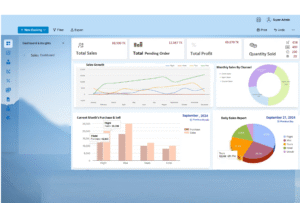
Spotlight on a Strong Local Solution: IV Trip
Here’s where we get concrete about a standout choice: IV Trip, a travel agency software developed by ImpleVista in Bangladesh. It meets many of the criteria we’ve outlined above and is tailored for the Bangladesh market.
Why IV Trip stands out
- Market-focus: IV Trip is marketed as “the best travel agency software in Bangladesh” with features designed for local agencies.
- GDS and airline API support: The platform supports “real-time GDS and LCC flight bookings” and “Bangladeshi airline APIs”.
- Agent/sub-agent structure: The solution offers multi-agent/sub-agent management, wallet systems, mark-ups, etc.
- Finance & accounting modules: IV Trip includes a purpose-built accounting module for travel agencies in Bangladesh (tracking receivables, expenses, profit analysis).
- Localisation: BDT currency support, local payment systems, tailored for Bangladesh agencies.
- Cloud-based, mobile-friendly and designed for growth.
Travel Management Software Comparison: What to Prioritise (Checklist Table)
Here’s a quick comparison table you can use as a decision aid when you’re comparing vendors.
| Feature Category | Why It’s Important | Key Questions to Ask |
| Real-time booking + GDS/APIs | Enables large inventory, live pricing, and competitive offers | Which GDS? Which local airline APIs? |
| Agent/sub-agent management | Many Bangladesh agencies use agent networks | Can you onboard unlimited sub-agents? Wallet system? |
| Cloud-based CRM software | Helps manage leads, customers, and agents from anywhere | Is the CRM integrated? Mobile friendly? |
| Accounting & back-office | Critical for finances, profit analysis, and compliance | Does it support BDT, local tax rules, and multi-currency? |
| Localisation & payment | Without this you’ll face manual work or workarounds | Which local payment gateways? Bangla UI? |
| Mobile & multi-channel support | Agents and customers expect access on the go | Is there a mobile app or responsive UI? |
| Scalability & Growth | As you grow, you don’t want to switch platforms | Can it handle more agents, more bookings, and region expansion? |
| Vendor reputation & support | Critical for longevity and reliability | What clients do they have? What support hours? |
Using this checklist helps you avoid being seduced by fancy features that don’t match your local reality.
Implementation Tips for Bangladeshi Agencies
Selecting the software is one step. Implementing it well is what drives real benefit. Here are practical tips specific to Bangladesh travel agencies.
- Map your current workflow
Before you adopt a new TMS, map out how you currently do bookings, payments, agent commissions, and reporting. You’ll better see where the bottlenecks are. - Define your goals
Set specific goals: e.g., “reduce manual invoice preparation by 70% in 6 months”, “onboard 50 agents in the next quarter”, etc. Software only helps you achieve goals you’ve set. - Ensure data migration plan
If you’re moving from spreadsheets or legacy systems, plan how to migrate bookings, agent data, and client data into the new system. - Train your team
In Bangladesh, you might have multilingual teams, varying tech comfort. A cloud-based CRM or booking system is only useful if your team uses it. Organize training sessions, prepare Bangla documentation if needed. - Start with a pilot
Don’t flip everything overnight. Run the new system for one business line (like flights) while keeping the old as a fallback. This reduces risk. - Measure and review
Use the dashboard and reporting in your software to measure performance: bookings processed, agent productivity, time per booking, error rate, and revenue per client. Make tweaks accordingly. - Plan for scale
If your plan includes adding inbound tourism, more agents, corporate travel or Gulf routes, choose a system that supports these expansions from day one. - Local support & vendor relationship
Make sure your vendor has local presence or strong support for Bangladesh time zones. Review the SLAs: uptime, issue resolution time, updates.
By following these steps, you maximize your software investment.
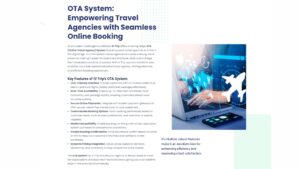
Why Choose a Cloud-Based Travel Management Software?
When you’re selecting a travel management software, one major decision is whether it’s cloud-based (SaaS) or on-premise. Here’s why a cloud-based model is increasingly the right fit for Bangladesh agencies:
- Accessibility from anywhere: Agents, sub-agents, sales salespeople can log in from their mobile or workstation, even if they’re in another city or country.
- Reduced IT burden: You don’t need to maintain servers, backups, hardware — your vendor handles infrastructure.
- Automatic updates: Cloud systems often receive feature updates, security patches, and new integrations without you doing heavy lifting.
- Scalability & cost-effectiveness: You can scale up (more users, bookings) without large capital expense.
- Better collaboration: Booking data, customer records, and agent networks are in one place, accessible across the organization.
Indeed, the CRM modules being promoted by modern travel software emphasize “cloud-based CRM software” to reflect these advantages.
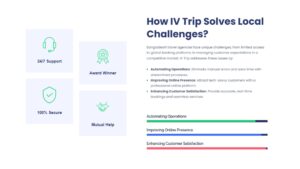
Common Pitfalls to Avoid
It helps to know what to watch out for — here are mistakes that many travel agencies in Bangladesh make when choosing software:
- Ignoring localization: A system may look perfect but lacks BDT currency support, local payment integrations, Bangla UI. That slows you down.
- Over-buying features: Big global systems may offer dozens of modules you’ll never use. Choose one aligned with your business model.
- Underestimating change management: Software is only as good as the team using it. Lack of training, poor adoption, and you lose value.
- Choosing based purely on price: Low-cost solutions may cut corners not only in features but support or speed — especially risky when you need real-time bookings.
- Forgetting future-proofing: As your agency grows (more agents/sub-agents, inbound tourism, corporate bookings), you need software that evolves rather than one you’ll have to replace.
- Neglecting security & uptime: In a cloud system, downtime or data breaches can cost you bookings and reputation. Vet your vendor’s infrastructure, backup policy, and data encryption.
Looking Ahead: Trends for Travel Management Software in South Asia
What’s coming next in travel tech? Here are some trends you should keep an eye on — they’ll affect which software you pick now and how you use it.
- Mobile first + agent apps: Agents are increasingly mobile. Software that supports a mobile-agent app will have an edge.
- Artificial Intelligence & automation: Automated chatbots for customer queries, dynamic pricing for packages, predictive analytics for bookings.
- Cloud & micro-services: Systems will become modular — you can plug in new services (e.g., visa processing, car rentals) as you grow.
- Enhanced APIs and partner ecosystems: More integration with third-party content (local experiences, city tours, transfers), so your TMS should support open APIs.
- Focus on personalization and customer experience: Agents will utilize CRM data to provide customized experiences (special offers, loyalty, upsells).
- Regional expansion: South Asia agencies will increasingly service cross-border and inbound tourism; your software must support languages, currencies, and multi-region content.
- Compliance and data security: With regulations tightening globally, software must support data protection, access control, and audit logs.
When you pick your software now, aim for one that gives you headroom to adopt these trends.
Make the Right Choice for Your Agency
In choosing the right travel management software for your Bangladesh agency, you’re not just picking a tool—you’re setting the foundation for your growth. A solution with strong GDS integration, cloud-based CRM software, local market support, and regional scalability is what will separate you from the rest.
With a platform built for Bangladesh and South Asia, you move from fragmented workflows and manual processes to streamlined operations, real-time bookings, and smarter decisions. Be sure to evaluate providers carefully, implement wel,l and set your team up for success.
Ready to move forward? Contant and explore a demo of IV Trip by ImpleVista today and see how the right software can power your agency’s next chapter.

FAQ – Travel Management Software for Bangladesh Agencies
Here are answers to 10 common FAQs that travel agencies ask when evaluating travel management software.
What is travel management software?
Travel management software (TMS) is a digital platform that automates core operations of a travel agency: flight/hotel bookings, tours, invoicing, agent management, CRM, and reporting.
Why does an agency in Bangladesh need a dedicated software?
Because manual or spreadsheet-based systems become unsustainable at scale. Bangladeshi agencies face local challenges (BDT currency, local payment gateways, domestic airlines, regional routes). A dedicated system handles these efficiently and supports growth beyond basic arrangements.
What does GDS integration mean, and why is it important?
GDS integration means connecting to Global Distribution Systems — platforms like Amadeus, Saber, Travelport — which provide access to large inventories of flights, hotels, etc., in real time. Without it, you’re limited or reliant on manual inputs. A travel management software with GDS integration gives you fuller access and competitive offerings.
How important is cloud-based CRM software in travel technology?
Very important. A travel agency software that includes a cloud-based CRM allows you to manage leads, customers, agents, and bookings from anywhere. It supports mobile use, location-independent work, collaboration, and data centralization, which are vital for modern agencies.
Can travel management software handle both B2B and B2C operations?
Yes — many modern TMS solutions support both business-to-consumer (retail travellers) and business-to-business (corporate clients, sub-agency networks). When evaluating, ask if the software supports agent portals, corporate dashboards, sub-agent wallets and lead tracking.
What local features should I expect for Bangladesh?
- BDT currency support
- Local payment gateways (bKash, Nagad, bank transfers)
- Bangla language interface or support
- Integration with local airlines and domestic routes
- Compliance with Bangladeshi tax/financial rules.
How much does it cost to implement a travel agency software in Bangladesh?
Costs vary widely: factors include number of users/agents, modules (flight, hotel, tours, CRM, accounting), deployment (cloud vs on-premise), customisation, training, support. Always ask for all-in budget (licence, onboarding, training, support).
How do I migrate from my current system to a new one?
Start by identifying all your current data (bookings, customers, agents, finances). Choose a vendor with migration tools or plan for manual import. Run a pilot, keep old system as backup until you’re confident. Train your team and monitor performance metrics post-go-live.
What are the risks of choosing the wrong software?
Risks include: continuing manual processes (no efficiency gain), extra cost for customisation, inability to integrate with important suppliers, vendor lock-in, poor adoption by staff, data migration failures, losing competitive edge.
What’s the future of travel management software for agencies in South Asia?
Future trends: stronger mobile/agent apps, AI and automation (chatbots, dynamic pricing), open APIs for partner content (activities, transfers), growth in inbound tourism (so you’ll need multi-region support), cloud-first deployments, and increased focus on data security and compliance. Choose a system that gives you flexibility to adapt.
